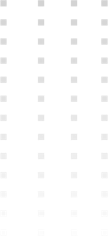#TPRCminds | Edwar & Martin
Research Technicians
Research Technicians Edwar Boer and Martin Hartman both have key roles at TPRC’s lab facility. Their work is essential to the research being conducted at TPRC. Here’s their story.
Read other #TPRCminds interviews.

The research technicians also ensure safety, which is crucial at TPRC. “For example, we inform everyone in the lab about the use of Personal Protective Equipment (PPE), such as protective gloves”, Martin says. Martin has only been at TPRC for four months, so he’s still relatively new. Prior to joining the lab, he was a high school maths teacher for eleven years, and he began his career as a technician in the Dutch Air Force. There he received training to become a crew chief. At TPRC, ‘his’ machine is the autoclave. Martin explains: “It’s a kind of large oven that you can pressurize with nitrogen. I help our researchers when they need to use the autoclave to compare materials or for research they conduct bilaterally with one of our partners, for example.”
F16
Martin also had his ‘own’ machine in the Air Force. His role as crew chief included technical responsibility for the maintenance of an F16 fighter jet. “A fantastic machine. I once flew along from England to Twenthe Air Base. Of course, TPRC does a lot of research for the aircraft industry. So when I hear terms like ‘leading edge flaps’ and ‘bulkheads’, I know what people are talking about. That’s not to say that nothing has changed in the meantime. In F16s, all the parts are still attached to each other with traditional rivets.
At TPRC, we join materials using a variety of techniques, such as induction welding – a wonderful development. And when I see the partners we work with... They’re big names. When I stop to consider that, I think: TPRC might not be very big, but it’s a major player in our field. Our students and researchers are really doing pioneering work.”
Education
Martin was also involved in knowledge transfer in the Air Force, something that played an even more important role in the teacher training program he subsequently enrolled in, and at the secondary school where he worked. “Teaching is very rewarding work, but it’s also highly demanding. After eleven years, I wanted to do more technical work again. And if possible, I also wanted to stay involved in education somehow. My job here at TPRC ticks both of those boxes. Getting this job felt like winning the lottery – I really mean that. Working with thermoplastic composites requires a great deal of technical expertise and there are a lot of students here. A perfect combination. I also learn a lot from them, even just before this interview. I was cutting a roll of unidirectional composite, a material that splits very easily because the tissues all run in the same direction. The cutting didn't go very well, which was very frustrating. One of the students was able to help me solve the problem.”
Unspooling wire
Edwar joined TPRC about six years ago. His key role in the lab focuses primarily on the operational side of things. “Like operating the press, making the laminates, maintenance, repairs and everything related to that. After getting my diploma as a mechanical engineer, I worked in the field for ten years as an assembler of flue gas cleaning systems, soot filters and industrial catalysts. I see myself as the link between theory and practice. To put it bluntly, there are researchers here who know all about the composition of a wire, but who know nothing about how to safely unspool one. That’s where I come in.”
Top secret
Something that still surprises Edwar sometimes, even after six years at TPRC, is the confidentiality and sensitivity of the projects. “My colleagues here develop groundbreaking innovations and applications in the bilateral projects with our partners. Some of those partners are also competitors in certain areas. That’s something I find interesting, that we’re really working on special and sometimes confidential projects. What I like most about my work is that it always keeps me busy. I like having my hands full – in the end, there’s nothing better than that.”
When you say ‘Edwar’s snack run’ at TPRC, everyone knows what you’re talking about. Every Friday, with the weekend right around the corner, Edwar walks around the lab and asks who’s craving a snack. “It’s just a small moment, but I still think it’s very important. It creates a sense of connection and fun in the workplace. Besides working hard, we have a lot of fun.”
#TPRCminds
Our series #TPRCminds introduces you to the people behind our success. Who are they? What is their background?
What drives them and what do they dream about? How do they look at the future of thermoplastic composites?
Continue reading other #TPRCminds episodes:
Photos ©Gijs van Ouwerkerk




